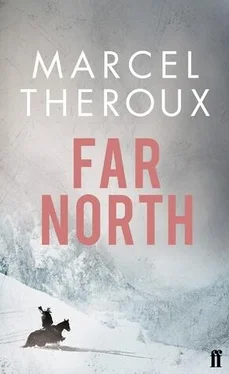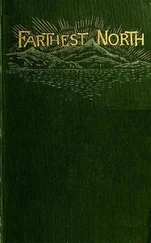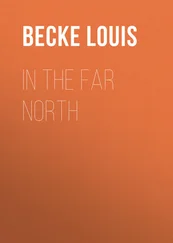*
When I had amassed enough, I bribed the boss of the prison smithy, a fellow named Pankratov, to let me back in there for a week. They never let me forget I was the most junior, and I had to shovel charcoal, and work the bellows, but it kept me out of the cold, and when it was quiet, I pulled little birds and flowers out of hot wire which I sold cheaply to the guards for them to give their sweethearts.
That one week turned into two, and then three, and it looked like I might be there a while, but a couple of the smiths got jealous over the trinkets I was making for the guards, and so to keep the peace, Pankratov told me my time was up.
I missed the warmth, but my work was done. In between the fancy wire work, I had made pieces for a tiny grapple that I hid in my shoes while the guards were cooing over the little owls and forget-me-nots. I buried the pieces just inside the wall of the latrine.
The little that I earned from the guards, I traded for a pair of leather boots off one of the new arrivals. They were a little broken down from the marching, but I paid another prisoner to fix them.
A few of the old-timers said I was a fool to pay so dear for them this time of year. No amount of foot-cloths could make them feel warm, they said.
These are the kind of things we talked about all the time. Every prisoner in that place was an expert on the tiny details that made our lives more bearable. In winter, every man who could get hold of them wore felt boots.
But I didn’t have them in mind for winter wear. I needed shoes that would hold up for a thousand miles of wet spring walking.
*
I took half my bread away with me, morning and evening, as many of the prisoners did. But where they ate it or used it for swaps and card games, I dried mine in my bunk, and when it was hard, I took it out to the grain store and hid it in places I’d found under the eaves, hanging on nails or from wires so the mice couldn’t reach it. I’d never done it myself before, but I’d heard you could make rusks this way. I stored it here and there, since if some were found, I’d still be left with the rest, and I thought I just needed enough to get me on my way.
Selling my warmest clothes left me underdressed for winter, and from eating less I grew weaker and my health suffered. Having being one of the strongest there, I began to fall sick with every fever that passed through the barracks.
The really ill were excused work and sent to the sick ward, but the place was so awful, and so full of consumptives, that most of us felt we were better off labouring through our fever.
One of the few signs of tenderness between us was that prisoners in the work gangs would notice a sick fellow among them and carry him through the day’s labourquo;dsquo;d done it often enough myself. We’d give the sick man the lightest bundles, or if we were working inside, let him rest on his feet leaning against the wall for as long as he could stay out of sight.
I say tenderness , but it was no more than reason. Each of us knew that there’d come a time when we needed to redeem the favour.
The worst one swept through the barracks towards the end of January. I was wobbly at the early morning milking. The men I was with put me down on a stool, and I began to shake with the almost pleasurable first shivers of a strong fever.
I was beside myself with the sickness. I seemed to be watching not Billy Erasmus, not Chingiz, not Gosha, carrying pails, but my mother and Charlo and Anna cooking Christmas dinner in the kitchen of our home. The light of the byre, which was so weak and watery, leaped up like a yellow flame, and there was a roaring heat all around me.
Gosha smiled at me. ‘Makepeace is flying! She’s been drinking. Look at her eyes!’
I couldn’t say anything, because the roar was deafening, and I recognized the sound: it was another plane coming. I stood up to tell them that we were all saved, and as I did, that yellow light turned blinding, and everything in front of my eyes melted into stars.
Gosha told me later that I went ghost-pale and fell to the floor with a crash that shook the walls. All I remember is things going dark, and me worrying what would happen to all the bread that I’d hid.
*
I came to in the sick ward, soaked in sweat and raving to be let go. The place was dark and smelled like a butcher’s. There were no guards posted. Because of the horror of the place, no one worked there and the sick were left to tend each other. As I soon as I was able to stand, I got up and left.
This time they took away my shoes to keep me put, but in the morning I stumbled out in the snow to reveille barefoot.
Boathwaite saw me this time. He had a word with one of the guards to keep me behind and give me my shoes back. I was too feverish to tie up my laces. One of my toes was white with frost-nip. And when I walked, it felt like my limbs wouldn’t move properly. They seemed to jerk forward in fits and starts like there was clockwork inside me.
I followed the guards, protesting to them all the way that I was well enough to work. But instead of leading me back to the sick ward, they took me to Boathwaite’s office.
*
For winter, he had brought in a pot-bellied stove with a chimney that poked out of a broken window. It filled the room with a choking heat, but I was shivering so hard that my voice shook like a lamb’s and my teeth seemed to rattle in my head.
One of the guards had come in with us and stood standing at the desk beside him.
‘Seems you’re determined to work,’ said Boathwaite.
‘Yes, sir,’ I told him, trying to keep him level as the room danced around his head.
&lsuoYou’re sick,’ he said.
‘Nothing too serious,’ I whispered between chattering teeth.
‘Your winter clothes. What happened to them?’
‘Gambling debts.’
Boathwaite winked at the guard. ‘I heard you’re none too good at cards.’ His voice echoed down to me, as though I was listening to him from the bottom of a well. ‘I heard you told the prisoners in the sick ward you got a plane coming for you. You planning to fly out of here?’
I shook my head.
‘You ever even seen a plane, Makepeace?’
‘No sir. I must have been raving.’
I thought then that perhaps my stash of bread had been found, or I’d blabbed about my plan to escape. In that case, they would certainly kill me.
‘You’re from the Far North, aren’t you?’
‘American originally.’
‘Settler family?’
I told him yes.
‘They tell me the settlers in the Far North are tougher than frozen mammoth shit,’ Boathwaite said, and the guard cackled.
I could barely hold my head straight. ‘I don’t know about that,’ I said.
‘Seems about right to me. Go get some rest,’ he said, and nodded to the guard.
I was too tired to fight. I barely understood what was happening. They hauled me down to the workshop and broke me out of my chains.
IT WAS A couple of days before the change in my life began to make sense to me.
For the first time in almost three years I had a room to myself. My new quarters had a cot bed with a stained mattress, a tiny desk with an oil lamp and a window that overlooked the parade ground. There were half a dozen streaks of brown on the ceiling above my head, each of them ending in a squashed mosquito carcass from the summer. There was no heat, but I had a pile of army blankets that stank of naphthalene.
Someone brought me food three times a day, and I sweated out my fever.
Part of me wanted to walk out the door right then, back onto the highway that was all silvered in the moonlight, and that would take me back the way I’d come. Likely as not, my house sat empty, with the pianola sagging to bits inside, and the dusty books and the bed-frames. The garden would have seeded itself from old crops and grown straggly and wild. I had a hankering to be back there, i a place I knew well, among the memories of my loved ones.
Читать дальше












